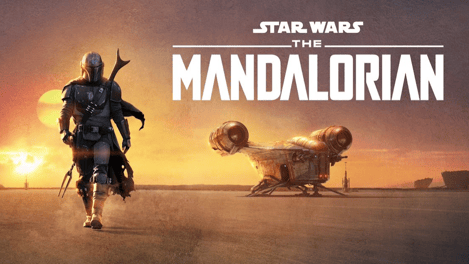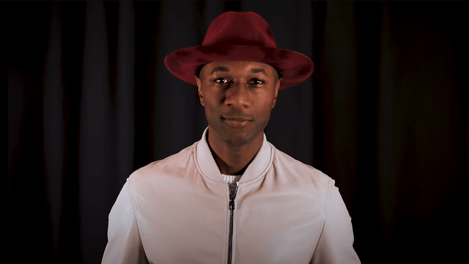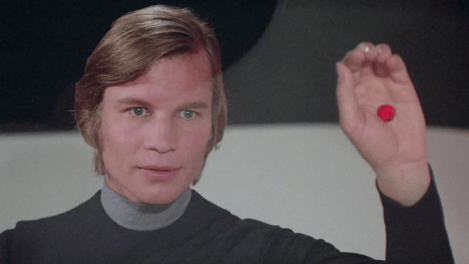
How Respeecher Helped a Person with Ataxia Preserve Their Voice
Losing the ability to communicate verbally is an incredibly challenging and emotional experience, especially for those with degenerative diseases. That's why Respeecher continues sharing stories about how the voice cloning technology positively impacts people’s lives.
This story follows Linda Snider, who has been diagnosed with Spinocerebellar Ataxia. This rare disease affects her ability to speak. Thanks to Respeecher's technology, Linda now has a way to preserve her voice and continue expressing herself authentically, even as her disease progresses.
Background
At Respeecher, we understand that witnessing a loved one struggle with a degenerative disease is one of the most difficult experiences in life. That's why we were honored to assist Mark in supporting his wife, Linda, when he reached out for our help.
Mark knew that Linda's ability to communicate with her loved ones was critical to her sense of self and wanted to take action to preserve her voice for the future. With Respeecher's voice cloning technology, Mark created a lifelike voice model that Linda can use to communicate even as her disease progresses. Being able to access and use her true voice empowers Linda to maintain those precious connections with those closest to her.
The Solution
At Respeecher, we approached Linda's voice cloning project with the utmost sensitivity and care. Mark provided us with several recordings of Linda speaking which we used to create an AI model of her unique voice.
We did everything to ensure that the synthesized voice was an accurate representation of Linda's natural voice. Now, the voice model can be used for text-to-speech conversion and to make voice synthesizer assistants sound more natural.
"Everything was easy to do. I'm not technology oriented, so if I say it's an easy process, that means a lot. Respeecher as a company is forward-thinking, responsive, helpful, and philanthropic," says Linda, adding to her experience with Respeecher.
Linda was moved to tears when she heard her cloned voice for the first time. She was surprised at how realistic and closely it resembled her original voice. The quality of the synthesized voice exceeded her expectations. It provided a sense of peace, knowing she could continue communicating with her voice, even when she is no longer able.
With access to her voice model, Linda plans to continue to express herself and share thoughts and feelings with the outside world:
"Watch out world..there's no keeping me quiet now. Because of Respeecher, I’ll always be able to express my feelings and thoughts to the outside world, not just in my head," says Linda.
Having access to her voice model has had a significant impact on Linda's life. She has gained a sense of peace and comfort, knowing that her sense of self and personality will remain, even when her ability to communicate becomes difficult.
Respeecher has given Linda and Mark a powerful tool to fight against her condition and continue living on her terms.
Summing Up
Respeecher's cutting-edge voice cloning technology allows individuals like Linda to preserve their voices for the future and maintain their sense of self. By providing an accessible and user-friendly technology, Respeecher empowers individuals to fight back against the debilitating effects of degenerative diseases and maintain their ability to communicate with their loved ones and the outside world.
FAQ
Voice cloning technology is developed using artificial intelligence to create an artificially intelligible AI voice model in a particular sound similar to a person. It will help preserve voice throughout a lifetime while creating realistic voice synthesis for applications like communication aids for degenerative diseases and text-to-speech technology among others.
Spinocerebellar Ataxia is a progressive neurologic disorder with disturbances in movement and speech. As the disease progresses, it can take away from the person their ability to verbally communicate. In such cases, maintaining communication becomes invaluable with voice preservation tools, which include Respeecher voice cloning.
Yes, with Respeecher voice cloning technology, any person struggling with degenerative diseases communication can save their voice. It creates a unique AI voice model that can be applied to text-to-speech technology to help the individual keep their actual voice, regardless of the disease's progression.
Of course, this AI voice model, created by Respeecher voice cloning, can be used with text-to-speech technology so that people—let’s say, Linda—can continue communicating with her voice when degenerative diseases like Spinocerebellar Ataxia have taken away her physical ability to speak.
Generally, voice cloning technology using Respeecher may take very little time. With audio recordings of the person’s speech, it may take only a few weeks to generate highly precise, realistic voice synthesis that speaks exactly like the person, ready to be used with communication aids for degenerative diseases.
Voice preservation tools can provide people with the ability to stay themselves while struggling with degenerative disease communication. It is a source of emotional comfort, helping them maintain their sense of self and connection with loved ones, ensuring that their voice will live on through realistic voice synthesis and AI voice models.
Glossary
Voice cloning
Spinocerebellar Ataxia
Text-to-speech (TTS)
Respeecher Gives a Voice to People with
Spinocerebellar Ataxia
One of the most devastating things about degenerative diseases is the loss of the ability to communicate. Thanks to Respeecher voice cloning technology, individuals diagnosed with conditions like Spinocerebellar Ataxia can preserve their voice and continue to express themselves and maintain their identity as their disease progresses. This innovative use of AI voice models and text-to-speech technology provides a lifeline for individuals facing communication challenges.
-
Losing One's Voice: The Emotional
Struggle of Degenerative DiseasesThe gradual loss of speech is an incredibly difficult and emotional experience for those diagnosed with Spinocerebellar Ataxia. While motor skills are in slow degeneration, the degenerative diseases increasingly make communication impossible, and speech is lost. Communication is one of the most important points in human connection, and to these people with Spinocerebellar Ataxia, that will feel like losing part of themselves. That is where voice preservation tools through Respeecher voice cloning among other tools comes into play. Give it an organic voice with the lifelike AI voice model, and a person will keep communicating even when the condition limits speech.
Because of this strange disease of Spinocerebellar Ataxia, the new revolutionary technology has provided Linda Snider with the option to freeze her voice for future use. Using Respeecher's voice cloning technology, now she could communicate with her close family and friends almost in the same tone that was typical for her previously. More than speech itself, preservation of voice speaks directly to a part of one's identity. -
Preserving the Voice Using
Respeecher's Cloning TechnologyThe process of preserving Linda's voice started with an AI voice model from Respeecher. Having realized how vital it was to preserve Linda's voice before her disease got the better of her voice, Mark, the husband, reached out to Respeecher. With several recordings of Linda's voice, Respeecher was ready to go: creating an AI voice model which is indistinguishable from Linda's natural speech. Using this AI voice model, Linda is now able to use text-to-speech technology to produce speech with the identical cadence of her voice.
Respeecher's voice cloning technology utilizes realistic voice synthesis to capture the precise subtlety of the human voice, ensuring that the synthesized voice maintains authenticity and emotional resonance from the original voice. The first time Linda ever heard her cloned voice, she knew that was what it sounded like—she just couldn't fathom how it sounded just like her. This technology would give her a great deal of peace of mind, for even when her ability to speak diminishes, her voice will be there, and she can communicate with loved ones freely. -
How Voice Cloning Transforms
Communication for Those with
Degenerative DiseasesIt's not just about generating speech, but retaining that capacity for meaningful communication during the advance of degenerative diseases. Using a personally created AI voice model, Respeecher voice cloning enables people like Linda to continue expressing themselves in ways that feel authentic to themselves. This is so much more than words; this is about self and connection to the world.
The experience of Linda with Respeecher voice cloning clearly shows that communication aid for degenerative diseases may bring very important emotional and psychological benefits. To be able to speak in one's voice—soothing and reassuring—even at a time when speech became difficult, was of great comfort. Now, Linda can express her thoughts, feelings, and emotions in a way that feels true to herself. This form of voice conservation together with realistic voice synthesis has allowed Linda to have her voice back, and, where possible, to participate in a conversation and be close with family and friends. -
The Future of Voice Cloning in
Empowering the Communication of
People Suffering from
Degenerative DiseasesThe prospects of voice cloning technology are bright for people afflicted with degenerative diseases, such as Spinocerebellar Ataxia. And as much more development in AI voice models and text-to-speech technology is performed, more people will be able to use tools that preserve their voices and enable them to communicate authentically. Respeecher brings a fresh approach to realistic voice synthesis, transforming life for those who have lost speech and enabling them to maintain their identity and connection with the world.
This has been a profound journey toward preserving her voice using Respeecher voice cloning for Linda. It gives her a sense of empowerment—to know that she can still communicate with her voice, even as the disease takes its course. This is not just a technological advancement; it's a lifeline for people fighting to handle the emotional and psychological burden of degenerative disease communication. This technology could help voice conservation, such as through Respeecher voice cloning, for the person concerned suffering from degenerative conditions, while their way of saying, now and forever, finds ways.







